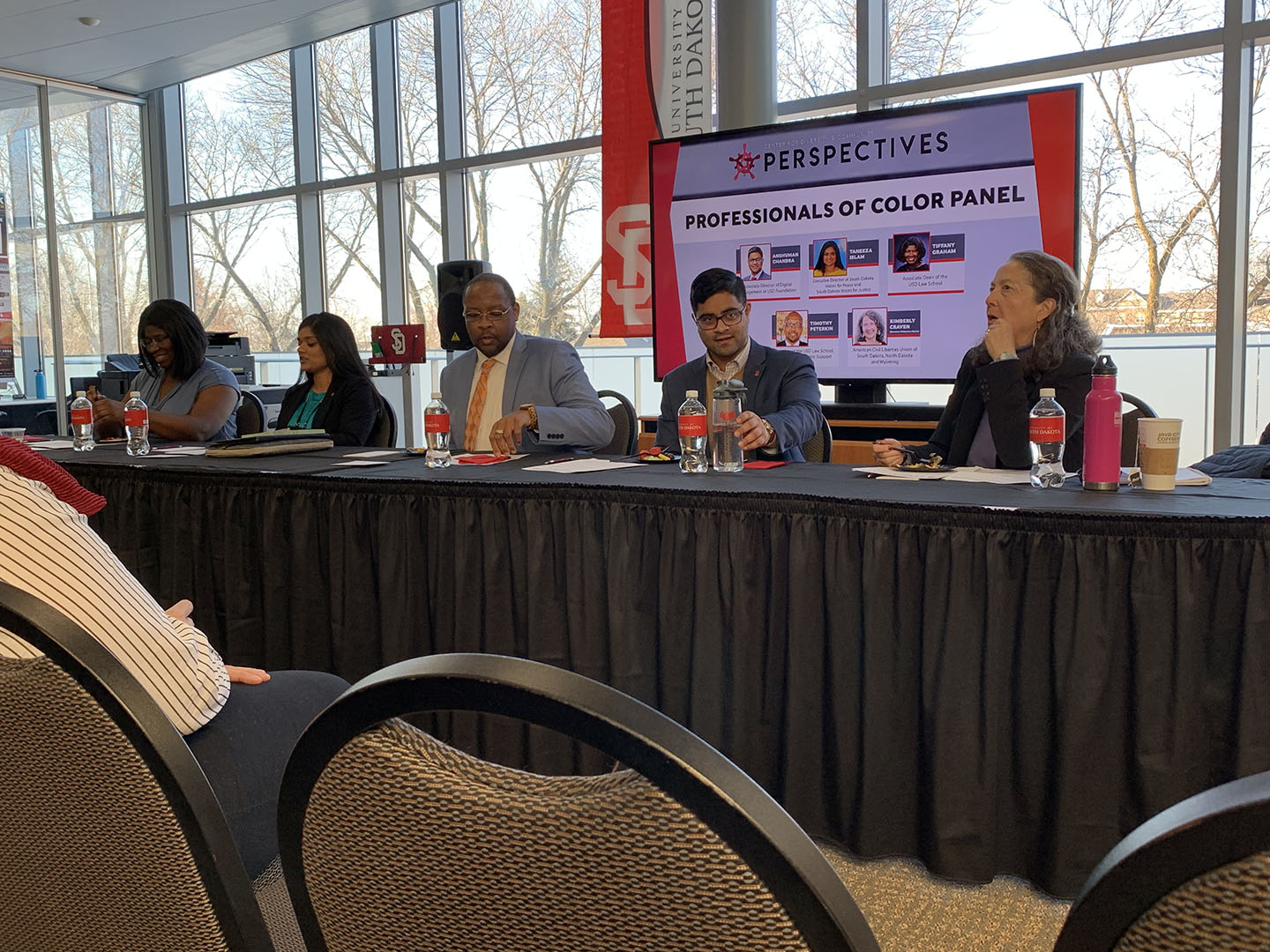
CDC hosts first Professionals of Color Panel
Students and faculty from all backgrounds gathered in the Center for Diversity and Community (CDC) for the first Professionals of Color Panel on Thursday evening. Professionals from USD, as well as other areas of South Dakota, came to speak about their experiences and success in the professional world.
The panel included five professionals: Anshuman Chandra, Taneeza Islam, Tiffany Graham, Timothy Peterkin and Kimberly Craven. Each individual brought their own personal perspective on what it’s like to be a person of color in their professions.
Saeed Dabbour, a recent USD graduate and CDC intercultural program coordinator, helped organize the panel, along with CDC director Laura Chandler and graduate assistant Roma Trivedi. Dabbour said he was excited to see so many students in attendance.
“This is something students have been asking for around three or four years,” Dabbour said. “We’ve never really had a panel like this. Even when I was a student, I always wanted a panel that included people of color and professionalism. This is very uplifting.”
Each of the panelists offered their own unique thoughts based on their experiences.
Taneeza Islam is the executive director of South Dakota Voices for Peace and an immigration and civil rights lawyer based in Sioux Falls. She said this panel was important to show students the professional opportunities available after college and provide guidance.
“It’s really important to share our common experiences when it comes to the good and the bad,” Islam said. “So to be in a setting which is open to hearing (about how) maybe we have been discriminated against, or maybe there have been positive things that have come through different races of mentors.”
Throughout her journey to becoming a lawyer, Islam said one of the few Muslims in her class and in her work. She said one of the most important things to remember, especially in the professional world, is to be self-aware.
“Always be reflective of your own ‘isms,’ or your own biases. Be self-reflective,” Islam said.
One of the goals of the panel, Dabbour said, was to allow students to form connections with people from their backgrounds and races and be able to ask questions.
“I related with almost everyone on this panel today,” Dabbour said. “With Taneeza, I realized, ‘I’m Muslim and no one in my family does the same thing I do. All of them are engineers, doctors, architects. They really have a different path than I do’.”
The panel consisted of students and other attendees asking questions about the experiences the panelists had to get where they are, challenges they might’ve faced along the way and how they dealt with those challenges.
Kimberly Craven, legal director for the ACLU of South Dakota, North Dakota and Wyoming and a member of the Sisseton-Wahpeton Oyate tribe, was another one of the panelists. She said she has faced many challenges in her professional career, but always knows how to keep herself going.
“I have a strange motivation and I say it when something really bad happens and when I’m in the depths of despair,” Craven said. “I say to myself, out loud, ‘this is the best thing that ever happened to me,’ because I found that we really don’t know what is going to be the outcome of some action.”
Along with Craven, each panelist shared how they motivated themselves to continue their professional journeys.
Nybol Kur, a sophomore nursing major who attended the Professionals of Color Panel, said she took this advice as inspiration for her future career.
“Diversity is really a big thing in the professional setting,” Kur said. “Sometimes I don’t have motivation when it comes to school. But seeing them talk about their setbacks and how they accomplished their goals made me think, ‘okay, I can do this’.”


